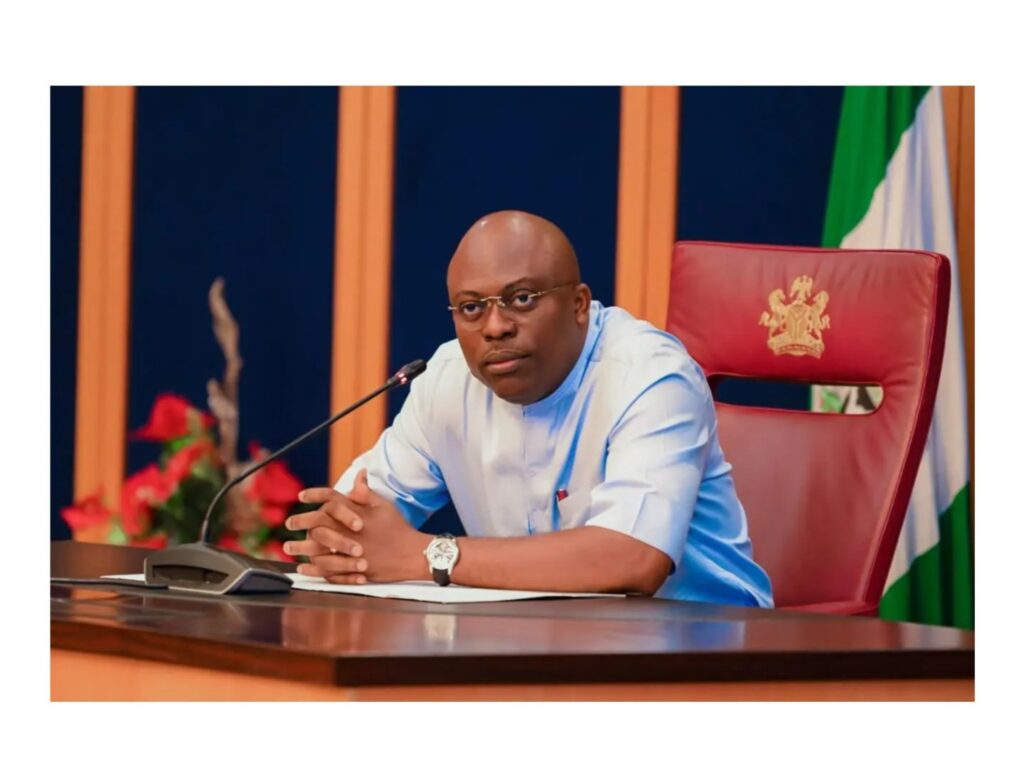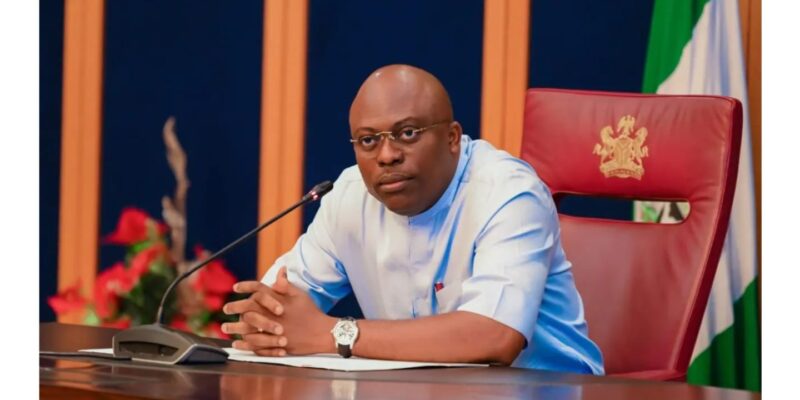
The Supreme Court has dismissed the lawsuit filed by Rivers State Governor, Siminalayi Fubara, seeking to remove 27 members of the State House of Assembly over their alleged defection from the People’s Democratic Party (PDP) to the All Progressives Congress (APC).
In a ruling delivered on Monday, Justice Musa Uwani-Aba-Aji struck out the case after Governor Fubara, through his lead counsel, Yusuf Ali (SAN), dramatically withdrew the appeal, citing that “events had overtaken” the suit.
The Rivers State House of Assembly and its Speaker, Martin Amaewhule, represented by Chief Wole Olanipekun (SAN), did not oppose the withdrawal, leading the apex court to dismiss the case and impose a N4 million fine on Fubara, payable to the Assembly and its Speaker.
Following the verdict, Senior Advocate of Nigeria Ken Njemanze declared that the ruling had cleared the way for the 27 lawmakers to fully reclaim their legislative roles. He emphasized that all actions taken by Governor Fubara in the absence of the lawmakers—including the controversial passage of the 2024 and 2025 budgets with only three lawmakers present—had been rendered null and void.
This decision aligns with prior rulings. On October 10, 2024, the Court of Appeal had dismissed Fubara’s appeal on the matter. Similarly, on January 22, 2024, the Federal High Court in Abuja, presided over by Justice James Omotosho, nullified the passage of Rivers State’s N800 billion budget by four lawmakers aligned with Fubara.
Justice Omotosho had previously ruled that the passage of the budget by the four lawmakers, led by Hon. Ehie Edison, was illegal. He further ordered Governor Fubara to re-present the budget to the Martin Amaewhule-led Assembly.
The 27 lawmakers, backed by former Rivers State Governor and current Minister of the Federal Capital Territory, Nyesom Wike, had approached the court to challenge Fubara’s actions. The suit, marked FHC/ABJ/CS/1613/2023, listed several defendants, including the National Assembly, Senate, House of Representatives, Rivers State Civil Service Commission, and the Inspector-General of Police (IGP).
While an interim court order had restrained Fubara from obstructing the legislators, the governor proceeded to present the budget to his loyalists and allegedly prevented the pro-Wike lawmakers from sitting by demolishing part of the Assembly complex and withholding legislative funds.
Justice Omotosho, in his final ruling, condemned the governor’s actions, describing them as “tyrannical” and an “affront on the separation of powers.” He ordered the reinstatement of the Assembly’s Clerk and Deputy Clerk, directed Fubara to release all withheld funds, and instructed the IGP to deploy police officers to secure the Assembly complex.
The court further restrained the National Assembly from taking over the Rivers Assembly or acting on any requests from Governor Fubara regarding legislative matters.
With the Supreme Court’s latest ruling, the crisis within the Rivers State government has taken a decisive turn, strengthening the authority of the 27 lawmakers and further complicating the political standoff between Fubara and his predecessor, Wike.

Comments